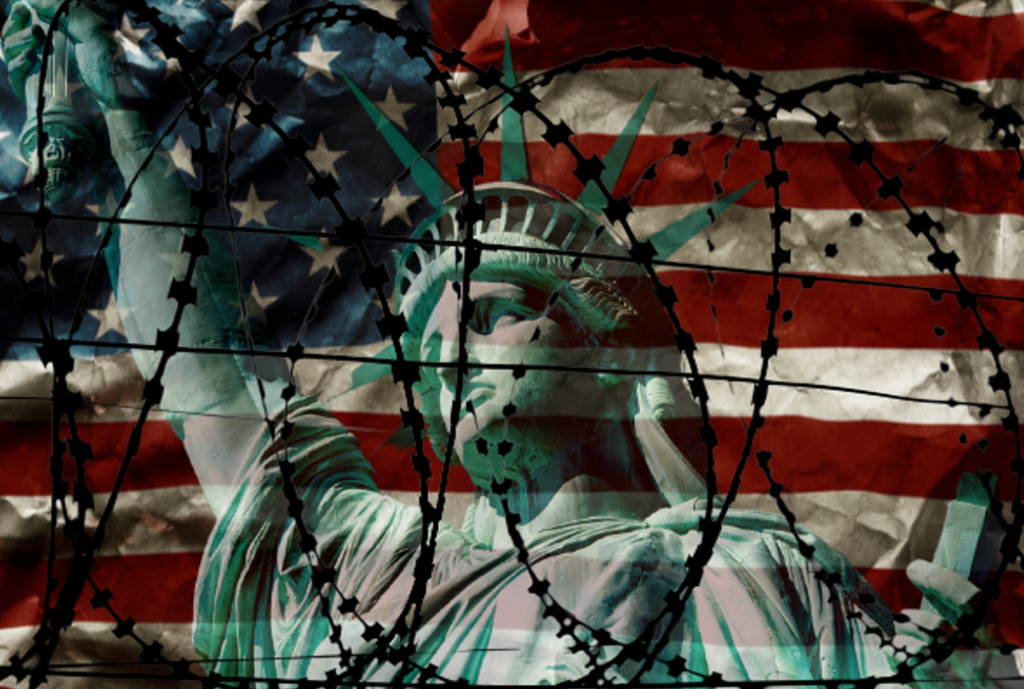In their compelling analysis, John W. Whitehead and Nisha Whitehead warn of the disturbing trajectory that the United States appears to be following regarding civil liberties and constitutional rights. Drawing from literary allusions and historical references, the authors outline a grim scenario in which governmental overreach is increasingly justified under the guise of national security. They suggest that the initial encroachments on civil liberties—such as mass surveillance, widespread detentions, and the militarization of police forces—are the precursors to an authoritarian regime that risks becoming entrenched in American society. This erosion of fundamental rights is not only facilitated by governmental powers but is also exacerbated by public complacency and a partisan political culture that allows for unchecked power consolidation.
The Whiteheads argue that once the government exceeds the constraints of the Constitution, recasting it as a tool to suppress dissent or control populations becomes easier. They contend that past examples, like calls during the COVID-19 pandemic for militarized enforcement of vaccination mandates, illustrate how quickly society can slide into acceptance of draconian measures. Although these extreme scenarios have not yet fully manifested, the authors caution that the precedent is disturbing. Already, the landscape is shifting toward a stance where marginalized groups—currently exemplified by illegal immigrants—are vulnerable to systematic targeting, and any citizen could become a potential target under an expanding definition of national threats.
A significant focus of their commentary is the militarization of local law enforcement, which the authors liken to a “standing army.” The emergence of SWAT teams and other militarized police units raises alarms about the implications for civil freedoms. The authors emphasize that instead of protecting citizens, these forces too often resort to excessive violence and create a climate of fear. This heightened militarization, they argue, compromises the notion of a government “of the people, by the people, and for the people,” pivoting instead toward a model where the state protects its power at the expense of individual rights and liberties.
Moreover, they assert that the right to say what one believes is increasingly under threat due to stringent regulations and penalties imposed by the government. The control over information and speech can lead to a chilling effect on dissent and criticism, foreshadowing a future where only government-sanctioned viewpoints are expressed publicly. Closely related to this is the alarming trend of state surveillance that invades personal privacy. The authors point out that citizens are subject to comprehensive monitoring and data collection, infringing upon the expectation of privacy in a free society. They contend that this pervasive surveillance system not only threatens individual freedoms but also stifles open discourse and healthy civic engagement.
The authors outline the disappearance of due process, noting that legal protections traditionally granted to individuals—such as being presumed innocent—are eroding. The contemporary legal landscape resembles a burgeoning police state where citizens are often treated as suspects, regardless of their actual conduct. The implications of this shift are profound, potentially paving the way for arbitrary detention and punishment without adherence to the principles of justice that were once a hallmark of American governance. The replacement of a presumption of innocence with a presumption of guilt destabilizes the foundational premise that the state must prove wrongdoing before imposing sanctions on individuals.
Ultimately, Whitehead and Whitehead emphasize the perils of allowing concentrated power to flourish unchallenged. They argue that a society where governmental authorities operate beyond constitutional parameters is ripe for despotism. The authors surge towards a dire conclusion: without vigilance and active engagement from citizens, the trajectory toward an ingrained police state may become irreversible. They issue a clarion call for individuals to recognize the slow unfolding of these realities and to resist complacency. By participating actively in civic life and holding their representatives accountable, citizens can safeguard their rights against the creeping encroachment of government overreach.

